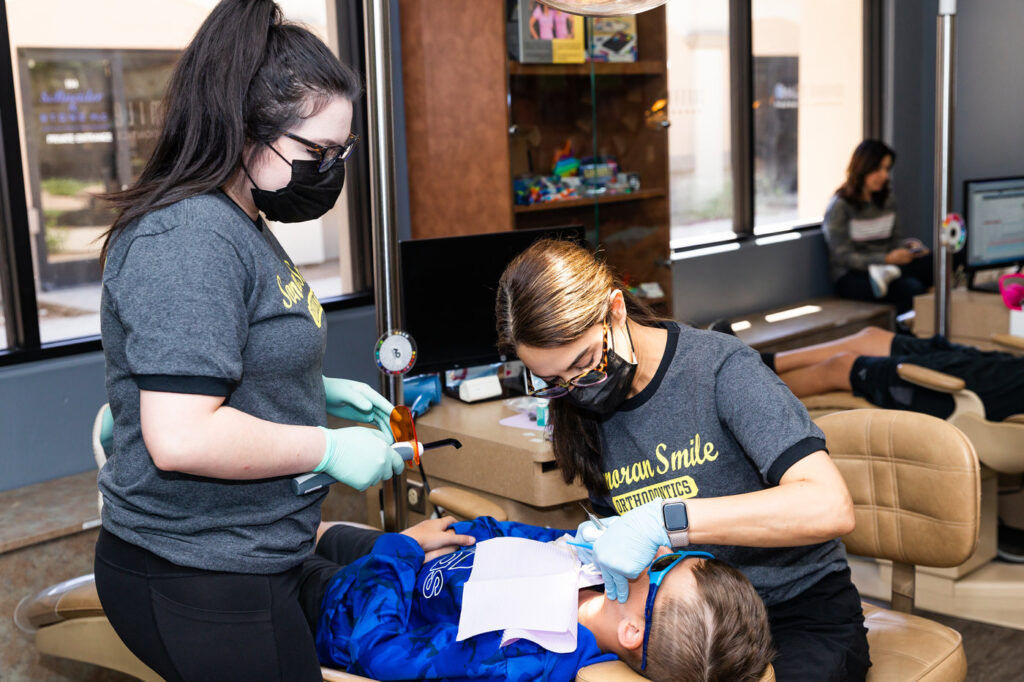Unlocking Adult Smiles: 5 Reasons to Consider Braces
January 11th, 2024

Orthodontic treatment, often associated with the teenage years, is gaining popularity among adults seeking to address common dental issues. Beyond aesthetic benefits, braces for adults offer solutions to prevalent oral health problems. This article explores five compelling reasons for adults to consider braces, addressing common dental issues that can be effectively managed through orthodontic intervention.
Correcting Misalignment for Better Oral Health
Misaligned teeth and improper bite alignment are not only cosmetic concerns but can also lead to serious oral health issues in adults. Difficulty in cleaning between crooked teeth can result in plaque buildup, increasing the risk of cavities and gum disease. Braces help correct misalignments, promoting optimal oral hygiene and preventing long-term dental complications.
Alleviating Temporomandibular Joint (TMJ) Disorders:
Many adults suffer from TMJ disorders, causing pain and discomfort in the jaw joint and surrounding muscles. Malocclusion, or misalignment of the teeth and jaw, can contribute to TMJ issues. Braces play a crucial role in realigning the jaw, reducing strain on the TMJ, and alleviating associated symptoms. The American Academy of Orofacial Pain provides valuable insights into the connection between orthodontic treatment and TMJ disorder relief.
Preventing Tooth Wear and Damage:
Adults may experience excessive wear on tooth enamel due to malocclusion or teeth grinding (bruxism). Braces can help realign the teeth, distribute biting forces evenly, and prevent uneven wear on tooth surfaces. This not only preserves the integrity of the teeth but also mitigates the risk of developing sensitivity and other dental issues associated with worn enamel.
Addressing Speech and Pronunciation Issues:
Malocclusion and misaligned teeth can contribute to adults' speech difficulties and pronunciation issues. Braces work to correct these oral conditions, improving speech clarity and overall communication. The National Library of Medicine recognizes the role of orthodontic treatment in addressing speech and language challenges related to dental issues.
Enhancing Digestion and Nutritional Absorption:
Proper chewing is essential for effective digestion and nutrient absorption. Dental misalignments may hinder chewing, leading to digestive issues and inadequate nutrient absorption. Braces can help align the teeth and improve chewing efficiency, contributing to better digestive health.
Adults considering braces have a range of compelling reasons to embark on this orthodontic journey, addressing not only cosmetic concerns but also common dental issues. From enhancing oral health and alleviating TMJ disorders to preventing tooth wear and improving speech, braces offer holistic solutions for adults seeking to prioritize their dental well-being. By understanding the links between orthodontic treatment and common dental problems, adults can make informed decisions to achieve a more aesthetically pleasing smile and optimal oral health. Contact Sonoran Smile today or visit our website, Sonoran Smile, to learn more about how we can help you reach all of your smile goals.



 Website Powered by Sesame 24-7™
Website Powered by Sesame 24-7™